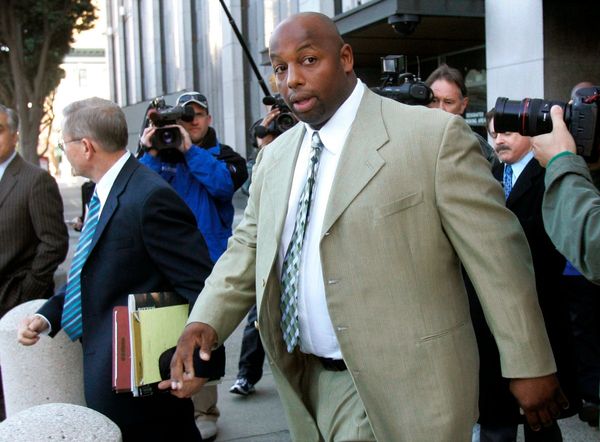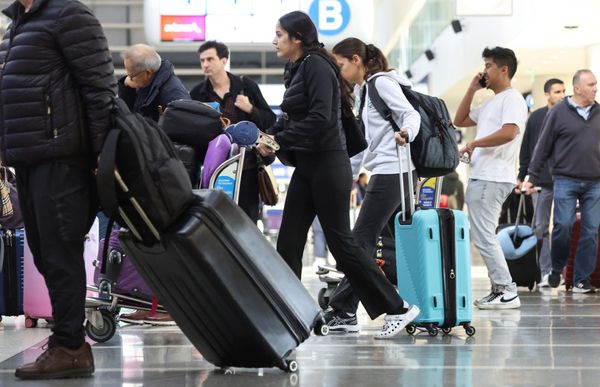
Rio de Janeiro (AFP) - Brazilians voted Sunday in a polarizing presidential election which front-runner Luiz Inacio Lula da Silva hopes to take in the first round as incumbent Jair Bolsonaro says he will accept the result if it is "clean."
The combative far-right president, who trailed Lula in opinion polls, has repeatedly alleged fraud in the Latin American giant's electronic voting system, raising fears he could refuse to recognize the result if he loses.
As he voted in Rio de Janeiro, wearing the yellow-and-green jersey of Brazil's national football team, the 67-year-old ex-army captain did not directly answer reporters on whether he would accept a defeat, saying only: "Clean elections have to be respected."
Lula, the popular but tarnished ex-president vying to make a comeback at 76, vowed for his part to "get the country back to normal" after four divisive years under Bolsonaro.
"We don't want more hate, more discord," said Lula (2003-2010) after casting his ballot in his bastion in the southeastern state of Sao Paulo, kissing the paper slip given to voters.
Lula went into Sunday leading Bolsonaro with 50 percent of valid votes to 36 percent, according to a final poll from the Datafolha institute.
That put the veteran leftist within arm's reach of winning outright and avoiding a runoff on October 30.
As polls closed at 5:00 pm (2000 GMT), supporters of both candidates gathered to watch the results roll in.The final outcome is expected around two hours later.
'Hoping for a change'
Casting her ballot in the capital, Brasilia, housewife Aldeyze dos Santos, 40, told AFP she supports Bolsonaro because "I'm a Christian; I only vote for candidates who are for what's in the Bible."
In Sao Paulo, 70-year-old retiree Lucia Estela da Conceicao said Bolsonaro's divisive term had left her "hoping for a change."
"As a black woman, it's been hard to see the country go backwards in terms of discrimination, prejudice, homophobia and also the economy," she said.
There were long lines at many polling stations -- including at Brazilian consulates in Berlin, Washington, Buenos Aires and other cities overseas.
Half-way through the vote, Superior Electoral Tribunal president Alexandre de Moraes said the election was proceeding smoothly and hailed the "transparency, security, auditability of electronic voting machines."
More than 500,000 security force members were deployed to keep the peace on election day.
Bolsonaro's attacks on the voting system have raised fears of a Brazilian version of the riots at the US Capitol last year after his political role model, former president Donald Trump, refused to accept his election loss.
Trump gave Bolsonaro a glowing endorsement Saturday, calling him a "fantastic leader" in a video posted on social media.
Political analyst Adriano Laureno said it is likely Bolsonaro will contest the result if he loses.
"But that doesn't mean he'll succeed," added Laureno, of consulting firm Prospectiva.
"The international community will recognize the result quickly...There might be some kind of turmoil and uncertainty around the transition, but there's no risk of a democratic rupture."
Heavyweight bout
Lula, an ex-metalworker who rose from destitute poverty to become the most popular president in Brazilian history, is seeking to stage a return after falling spectacularly from grace and spending 18 months in jail.
Convicted in a massive graft scheme involving state-run oil company Petrobras, he regained the right to run for office last year when the Supreme Court quashed his convictions.
Bolsonaro, who swept to office in 2018 on a wave of anti-establishment outrage, still has the die-hard backing of his "Bibles, bullets and beef" base -- Evangelical Christians, security hardliners and the powerful agribusiness sector.
But he has lost support with his management of the weak economy, his vitriolic attacks on lawmakers, the courts and the press, a surge in Amazon rainforest destruction, and his failure to contain the devastation of Covid-19, which has claimed more than 685,000 lives in Brazil.
Many Brazilians are disillusioned with both contenders -- and the lack of alternatives -- in a race where none of the other nine candidates managed to garner 10 percent of stated voter support.
Brazil's 156 million voters also voted for the lower house of Congress, one-third of the Senate, and governors and state legislators in all 27 states.







